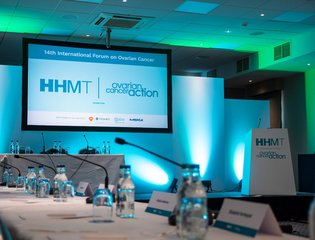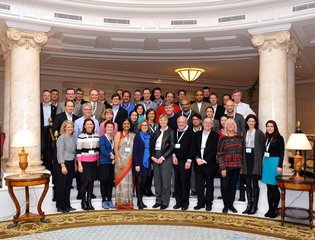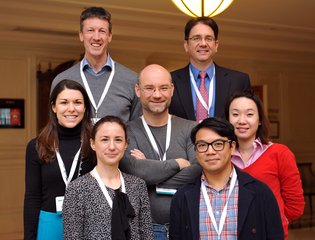Get to know the next leading ovarian cancer researchers
Our travelling fellows answers our questions about working in ovarian cancer research, what drives them every single day and how they unwind.
WHAT IS A TRAVELLING FELLOW?
Get to know Dr Olivia Le Saux
I am a gynae medical oncologist, therefore in my every day life I take care of patients.
Ovarian cancer is to date the deadliest gynae cancer. I cannot continue this "job" without research. I cannot continue without the hope I will understand and treat this disease better tomorrow.
Moreover, I have been practising medical oncology for 13 years now and I have seen practices evolving even in a short timeframe. Research cannot be disregarded in oncology!
There are two types of bad days: one where patient is in a bad position, these days encourages me to continue.
And days where the research doesn't lead to a positive result. But I'm motivated as negative results often leads to interesting results and means positive results are to come!
A patient with High Grade Serous Ovarian Cancer who was not supposed to respond to a specific treatment, as it is well documented that the treatment isn't the most effective, but the patient responded well and is still No Evidence of Disease.
Never say never in oncology!! Every patient is unique and that's what research is needed to try to understand.
Access to funding!
Another barrier to progress is the accessibility to fresh tumours at various stages.
I spend my time with family and two very very active little boys - aged 6 and 3!
Meet experts, discuss upcoming challenges !
Get to know Maria Sol Recouvreux, PhD
I early on found out that was passionate about science, and my training as a biologist lead me toward cancer research. As a woman in the field I know how important it is to put more efforts towards woman's health. I started working on breast cancer field, but when I had the chance to switch to ovarian cancer I didn't hesitate. I think the lack of improvement in prevention and new efficient therapies in the last 20 years is what drives my energy towards understanding fallopian tube and ovarian cancer development.
Knowing that what we are doing could impact patients lives by finding new targets for therapies or prevention strategies
I feel the biggest problem is that is considered a rare cancer and efforts towards a cure are lesser in comparison to other cancers such as breast cancer. Getting grants for ovarian cancer is harder for this same reason.
Mostly spending time with my family, my 2-year-old twins, and going to the beach when we have the time
I'm excited about getting to know the top researchers in the field, hear about their research and shared my ideas with them.


